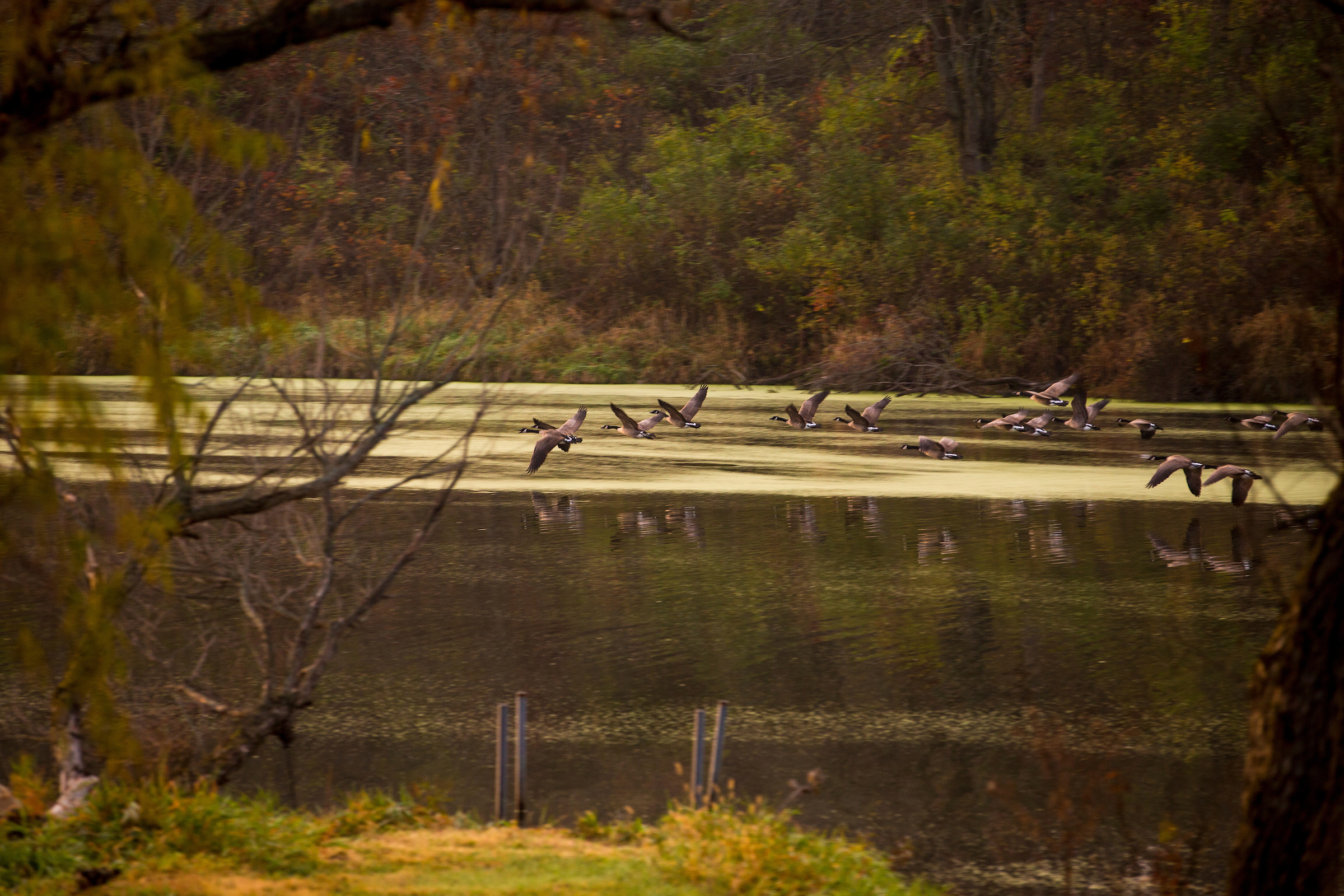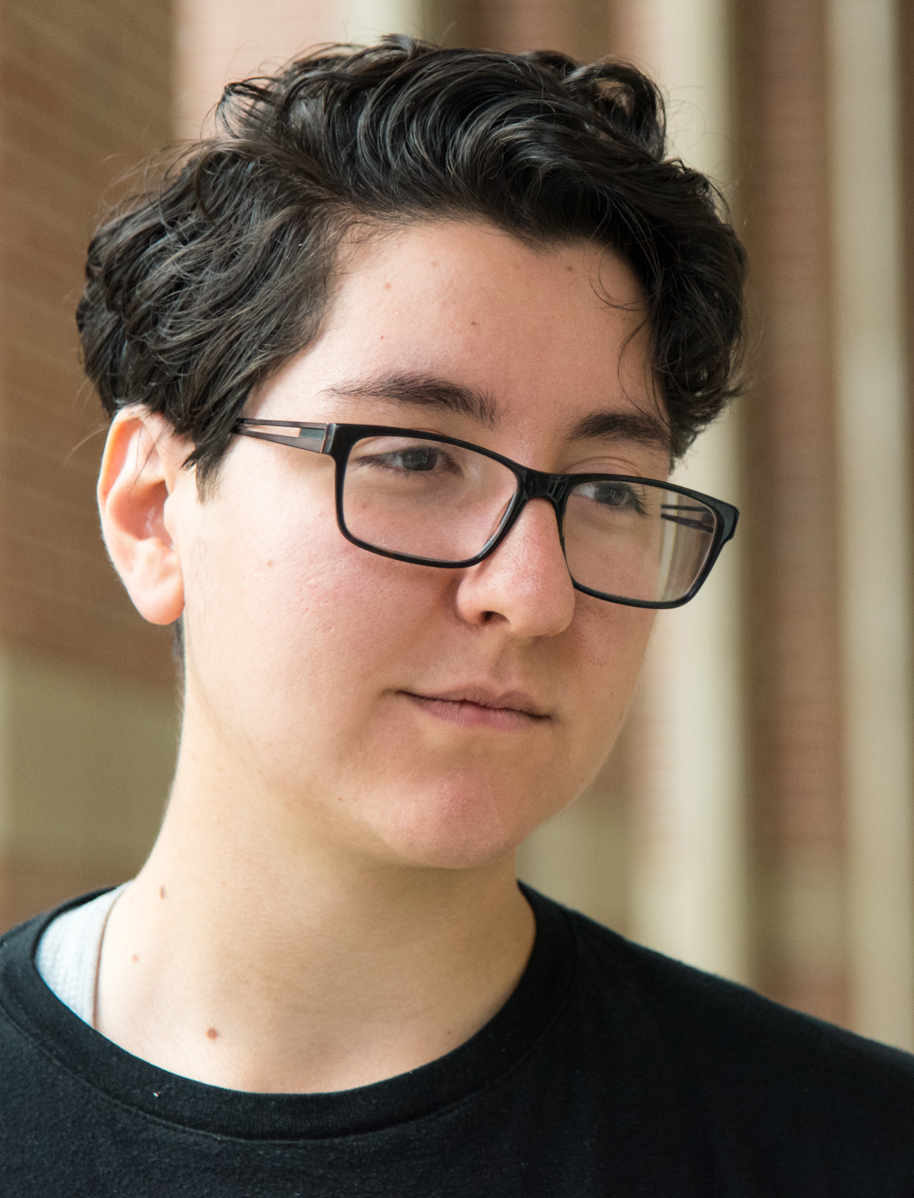As a Georgia native, I thought the Midwest meant corn and cows and people who said “baggy” as “bayggy.” It wasn’t until my first year in Iowa that I realized how charming the sleepy little state could be.
At sixteen years old, a junior in high school, I set out for Iowa Lakeside Laboratory in Milford, Iowa for a conservation biology class. The field station was established in 1909, and the stone cabin classrooms bore evidence of a century of weathering. They felt lived in, like stepping into a pair of my father’s work boots. How a structure could survive a hundred years of tornadoes, hail, and Midwestern lighting baffled me, but there I was, standing in one.
“Alright, time to go,” my professor said. After a brief lecture on wetland ecology and conservation, we put on our waders and were off to count some wetland vertebrates. Over four weeks of counting, we’d see how the vertebrate data compared to previous records for that specific time period, indicating how its wetland ecology changed over the years. In my juvenile ignorance, though, I didn’t really comprehend the importance of the work we were doing. I was just excited to stomp around in wetland for the first time.
My four classmates and I loaded into one of those boxy white vans. Starting up the engine, my professor tossed, “You ready, Georgia?” over his shoulder: a clever nickname my colleagues came up for me.
“As I’ll ever be,” I replied. We set off.
The miles of corn reminded me of the beach. Water never interested me, but you better believe I was that kid making civilizations out of sand. I, the sand castle wizard, built kingdoms from grains, subjects out of sea shells and stray twigs. The result would be something like the topography of Georgia: hilly, mottled, and charmingly uneven, but with a firm swipe and fierce “Mwahaha” I made the land flat again. This was how I saw Iowa: a land swiped of all its features, comforted by the horizon. I felt like I could unfurl my arms in the transparency of the open land and touch nothing on either side.
We exited the van to a fanfare of frog songs. A sulphur-smelling wetland shimmered past a fence of reeds. My classmates and I grabbed our field notebooks, a bucket, a seine net, and the data sheets and took our initial steps into the murky water.
In addition to being the kid who exclusively played in the sand, I had also enjoyed rolling around in mud. Taking those first few steps awoke the sleeping child in me. I kid you not, I actually giggled as I walked further in, the water rising past my ankles and knees, sloshing water with every step.
But the giddiness disappeared when I took one step and sank to my crotch. Water spilled over the top of my waders and soaked my torso and legs. I stepped back on my free leg to pull myself out, which just got my opposite foot stuck. There I was, a drunken see-saw trying to stop the wetland from nibbling my feet. My native Iowan classmates might as well have been those lizards who can walk on water.
The class had already checked the cages, documenting frogs, salamanders, or any other critter while I was ten feet back slinging mud everywhere. By the time I had made about three feet of progress, the others had finished up and started back towards the van. Panic jolted my stomach. It was the first day of class and I didn’t want to keep everyone waiting because I was mud-wrestling myself out of a wetland. I silenced my motions, breathed in, then breathed out. I knew what I had to do.
I closed my eyes, dipped under the murky brown water, and pressed my palms against the bottom of the wetland. Cold mud oozed between my fingers. With a firm push and mental cursing, the wetland released my boot. I doggy-paddled out, avoiding the muddy bottom entirely. My waders sloshed with water as I ran out of there. I probably looked like the mud-equivalent to Carrie at prom, but I made it back to the van right as the last student sat down.
My professor hid a smile, baseball cap covering his eyes. “Mud mask, Georgia?”
I quieted my panting. “And a workout.”
My second intimate encounter with the Iowa terrain happened three years later, when I returned to the same field station, as the summer Writer in Residence. I was a rising junior in college, filled with frantic creative energy.
I had been writing late into the night in a building near my cabin. The front wall was almost completely made of glass so potential visitors could see if the building was occupied or not. At midnight, I was the only one there.
As I saved my Word documents and packed my bags, a flash of light startled me. The intensity of the flash reminded me of paparazzi snapping photos with those gaudy attachable lights. Then another flash.
Is it fireworks? I thought. It was close to the Fourth of July, but who used bright white fireworks?
Turned out to be neither. Just a good ol’ fashioned Iowa lightning storm.
My breath fogged the glass wall as I stared at the sky. The frequency of the lightning increased till it looked like a child flailing a flashlight underneath a slush colored blanket.
“Whoooaaaa.”
The same childlike giddiness bubbled into a smile on my face. But then the first gunshot of thunder nearly floored me. Then the hail fell, pounding against the ground as if a thousand terrible golfers thought my building was their target. I had never experienced anything like it: the torrents of hail, the spasming lights, and the boom after boom of thunder. If the prairies were quiet by day, they certainly partied by night.
Despite the frenzy, the chaotic weather outside emphasized the stillness within the building, much like how passing a car crash makes me appreciate the togetherness of my own car, my own body. I sat on the cold tile floor, enjoying my steady breath as if it were a warm cup of tea. I slept on the floor that night, lulled by the hail pinging against the roof.
Some people brag about sleeping with numerous partners. I brag about
sleeping with a lightning storm, which is something I can’t say in
Georgia. As I live my life in the Peach State, I catch myself teleported
back at Lakeside Laboratory, remembering the land—honest, with nothing
to hide—and feel like I’m back in a second grade recess. While Georgian
stability is nice, it doesn’t compare to hungry wetlands and
cloud-paparazzi. I miss the gentle chaos, plan to return to the land of
corn someday. Hopefully with a full body wetsuit and ear plugs.

Photo by Justin Hayworth.


